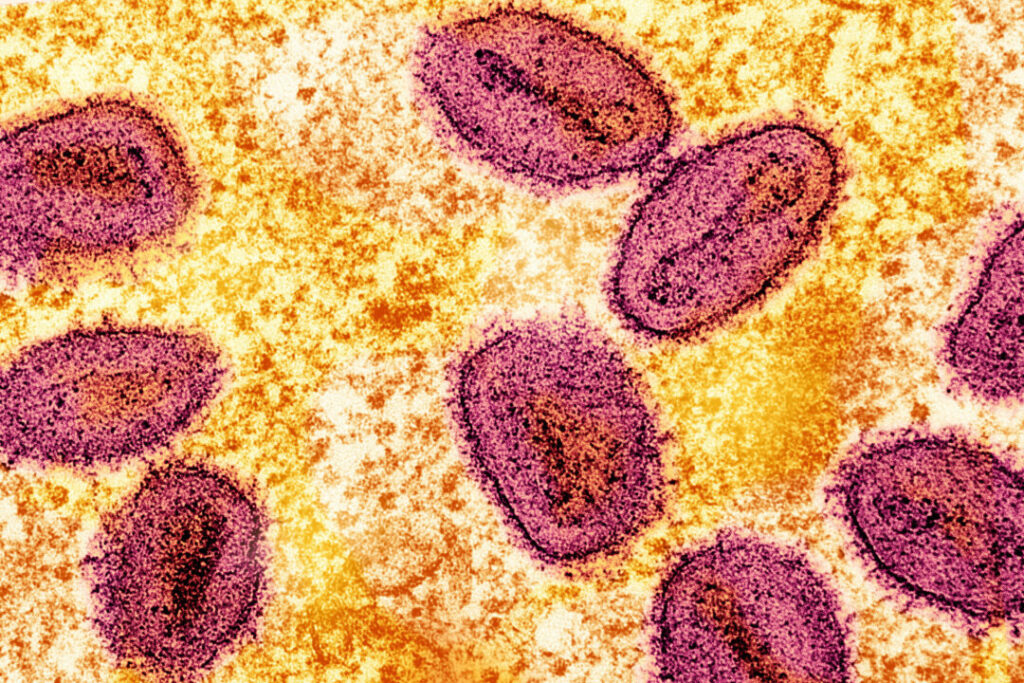
FILE PHOTO: An undated colorized transmission electron micrograph of mpox virus particles (pink) found within an infected cell (yellow), cultured in the laboratory, captured at the National Institute of Allergy and Infectious Diseases (NIAID) Integrated Research Facility (IRF) in Fort Detrick, Maryland. NIAID/Handout via REUTERS/File Photo
The World Health Organization (WHO) confirmed a total of 3,135 monkeypox cases globally in September 2023, highlighting a significant health concern as over 80 percent of these cases were reported from the African region. The report, released on October 30, indicates that these cases originated from 42 countries and included 12 fatalities.
This uptick in monkeypox cases is part of a broader trend observed throughout the year. Between January and September 2023, WHO recorded a cumulative total of 44,299 confirmed cases across 93 nations, leading to 180 deaths during this period. The increase in reported cases raises concerns about the virus’s ongoing transmission and its potential impact on public health.
New Clade Ib Cases Detected
The latest report notes that several countries, including Malaysia, Namibia, the Netherlands, Portugal, and Spain, have reported the detection of the clade Ib monkeypox virus (MPXV) for the first time. This development emphasizes the virus’s expanding geographical reach.
Furthermore, WHO highlighted that new imported cases of monkeypox, attributed to clade Ib MPXV, have been identified among travelers in Belgium, Canada, Germany, Italy, Qatar, and Spain. These findings suggest an increasing risk of transmission beyond the regions where monkeypox is endemic.
As governments and health organizations continue to respond to this growing public health issue, the WHO’s report underscores the necessity for ongoing surveillance and preventative measures to mitigate the spread of monkeypox globally.







